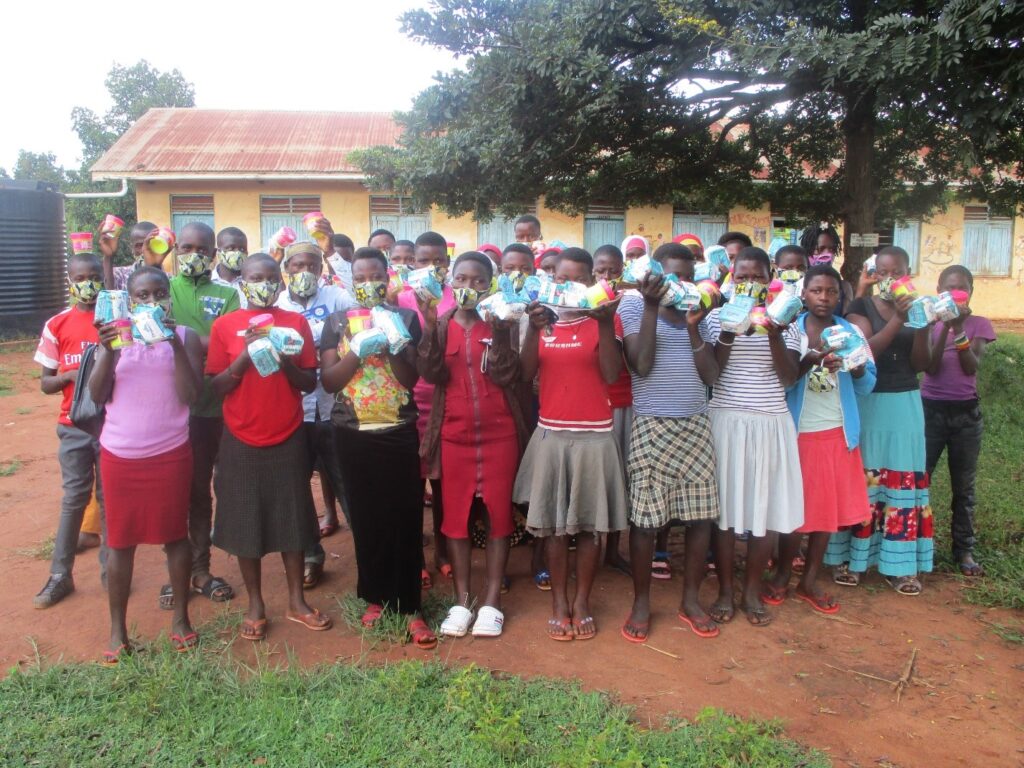
Background of the COFCAWE menstrual hygiene program
In 2019/2020 during the outbreak of COVID 19 pandemic, COFCAWE through the research conducted realized that one of the factors why girls were getting pregnant and dropping out of school was lack of basic needs including sanitary pads. It is because of this reason that COFCAWE distributed disposable sanitary pads to girls in the villages of Busakira sub county in Mayuge and southern Division in Kamuli district. Feedback from the beneficiaries revealed that disposable sanitary pads were not affordable by parents and were not sustainable too.
After the pandemic, COFCAWE came up with an innovation of training girls in the schools in the operation area to make reusable sanitary pads using the locally available materials like clean cotton cloths, threads, soft polythene among others. During follow up sessions, the trained children raised challenges among which included scarcity of alternative materials that could serve the purpose very well and the hand made pads were not as neat and so it needed more innovations.
COFCAWE therefore invested in a center (Hub) where quality, hygienic reusable sanitary pads are sewed for distribution to the most vulnerable girls in the communities. In 2023, COFCAWE intends to distribute reusable sanitary pads to 120 girls to enable them not only access hygienic and safe menstrual products but also break the silence about poor menstrual management in schools through advocating for clean latrines, water facilities, independent changing rooms in the schools and equipping them with sanitary pads to be used in cases of emergence. In future, COFCAWE intends to increase on production for distribution to the vulnerable girls in the community

